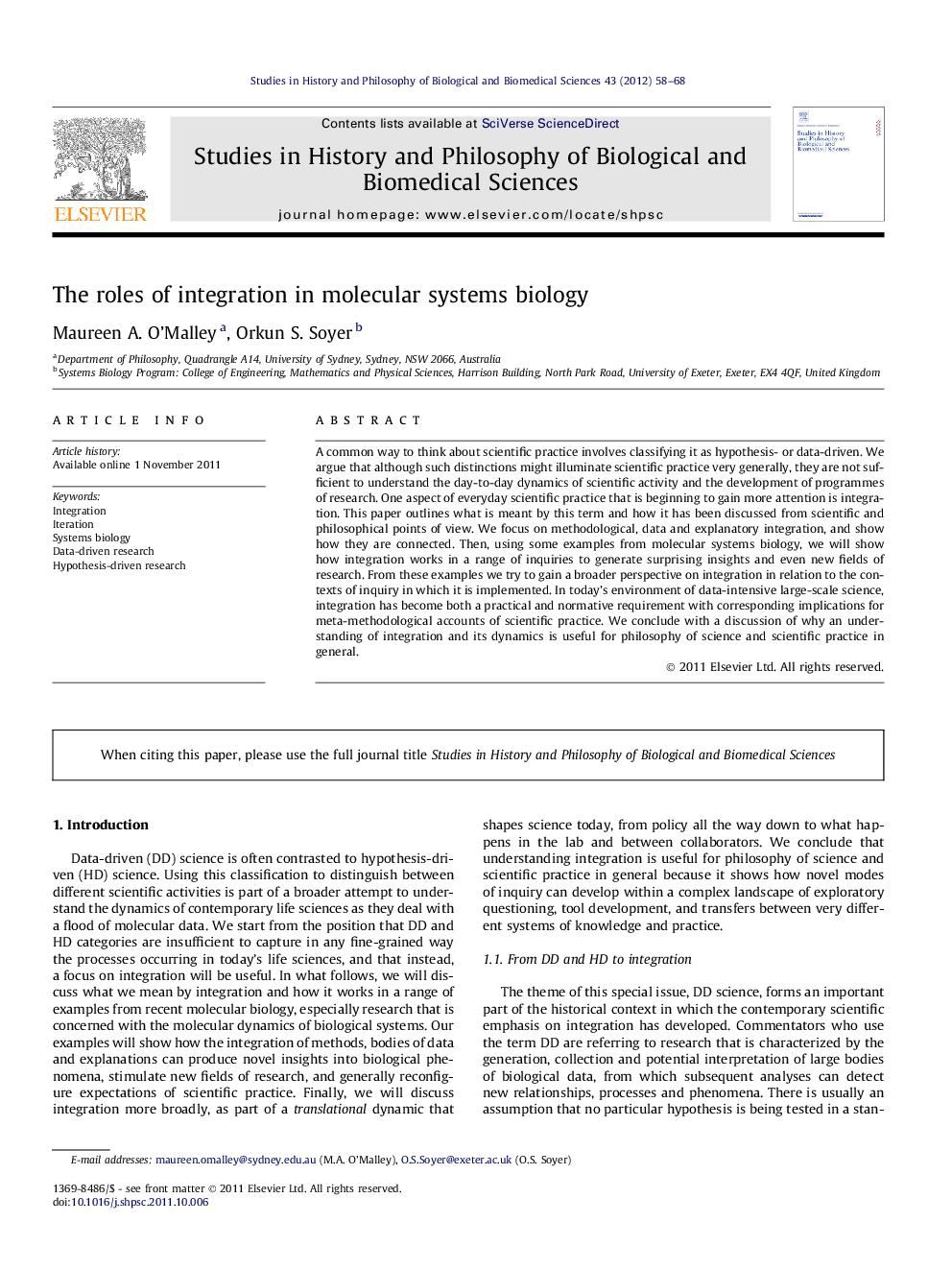| Article ID | Journal | Published Year | Pages | File Type |
|---|---|---|---|---|
| 7553044 | Studies in History and Philosophy of Science Part C: Studies in History and Philosophy of Biological and Biomedical Sciences | 2012 | 11 Pages |
Abstract
A common way to think about scientific practice involves classifying it as hypothesis- or data-driven. We argue that although such distinctions might illuminate scientific practice very generally, they are not sufficient to understand the day-to-day dynamics of scientific activity and the development of programmes of research. One aspect of everyday scientific practice that is beginning to gain more attention is integration. This paper outlines what is meant by this term and how it has been discussed from scientific and philosophical points of view. We focus on methodological, data and explanatory integration, and show how they are connected. Then, using some examples from molecular systems biology, we will show how integration works in a range of inquiries to generate surprising insights and even new fields of research. From these examples we try to gain a broader perspective on integration in relation to the contexts of inquiry in which it is implemented. In today's environment of data-intensive large-scale science, integration has become both a practical and normative requirement with corresponding implications for meta-methodological accounts of scientific practice. We conclude with a discussion of why an understanding of integration and its dynamics is useful for philosophy of science and scientific practice in general.
Keywords
Related Topics
Life Sciences
Agricultural and Biological Sciences
Agricultural and Biological Sciences (General)
Authors
Maureen A. O'Malley, Orkun S. Soyer,
